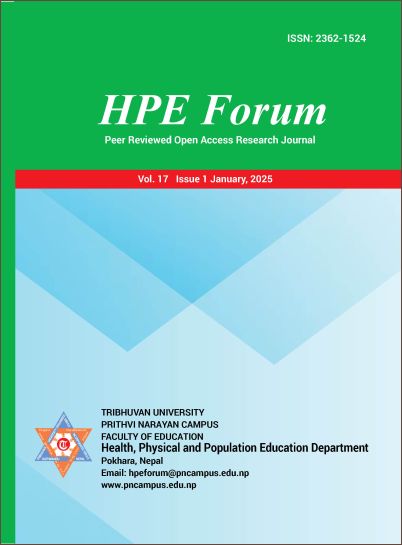Menstrual Hygiene Management among School Girls
DOI:
https://doi.org/10.3126/hpef.v17i1.76539Keywords:
Adolescence, cultural taboos, menstrual hygiene, management, sanitary pads, school girlsAbstract
In Nepal, menstruating women are considered impure, and adolescent girls are not allowed to do household chores and restrict to participate in religious or cultural events during menstruation. Menstruation is an important event in the life of an adolescent girl, which indicates that signs of maturity. Detail information about menstruation that begins in early adolescence will improve safe practices and alleviate suffering for millions of women. Quantitative data were collected by self-administered questionnaire was completed by schoolgirls in four schools, two were private and two were community. A survey was conducted among adolescent girls (10-19 years) residing in Banke District. Four schools were selected purposively. A purposive sample of 100 female students were selected from grades 9 and 10 from the out of 233 students (Grade 9 = 10, Grade 10 = 15, total 25) was selected by quota sampling method. The questionnaire survey was used as a research tool and data collection was obtained consent from both school principals and respondents before taking the data. The data were analyzed using a simple frequency table and to interpret the results descriptively. Study found that Shyness, high costs and prices, lack of prior knowledge, and unavailability in local shops among others were significant factors that were not promoting girls to use disposable sanitary pads which neglected the Menstrual hygiene management. Despite the cultural stigma on menstruation, a considerable number of girls attend the regularity to schools, with or without notice if they are on their periods.




